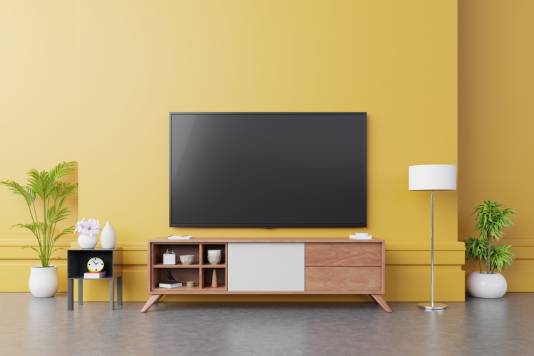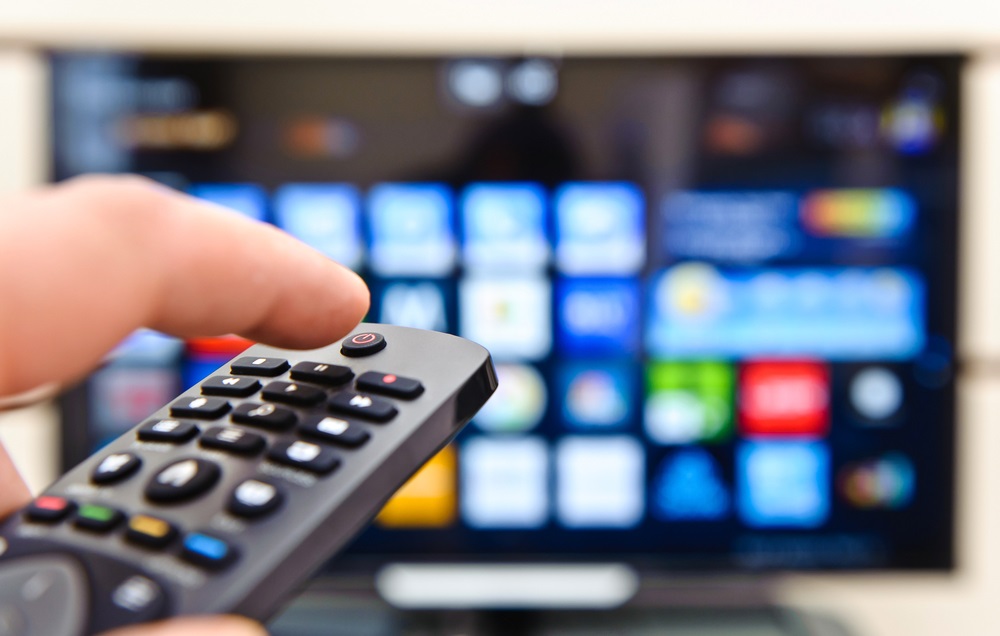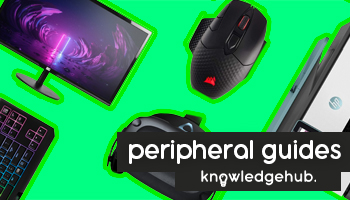This blog was updated in September 2022.
Gone are the days of a bulky cathode-ray tube box in the corner of your living room. In the 21st-century, “what’s a smart TV?” is a question well worth asking. And you know us. We’ll do our best to give you as much information as possible to answer it and other smart TV questions in easy-to-take-in terms. So, when it comes time to upgrade from your old entertainment set-up, you’ll be in the best place to make an informed purchase.
You can get 4K TVs, Full HD TVs and more variations. But smart TVs? Well, put simply, a smart TV is a television that has built-in internet capabilities.
How does a smart TV connect to the internet?

There are two methods in which a smart TV can connect to the internet. They are…
Wi-Fi: A wireless receiver built into the TV. Like you’d find on a smartphone, tablet, or laptop. The simplest connection type as there is no cable involved. All you’ve got to do is go through the easy set-up process, plug in your router’s password, and you’re done. Your smart TV will then automatically scan for and connect to that router each time it’s switched on.
Ethernet: A wired connection that runs over an ethernet cable from a smart TV to your router, whether that’s directly or through a powerline adapter.
Having a cable running across your set-up isn’t the tidiest, but because it’s a hard-wired connection ethernet is very reliable. It often has the best speed and signal, whereas Wi-Fi can be prone to signal loss. If your router isn’t great or your home has Wi-Fi ‘dead zones’, ethernet is a great alternative.
For those planning on streaming ultra-high-res videos without buffering, you’ll need an exceptionally fast internet connection. If your broadband isn’t the fastest it would be wise to connect your smart TV up to the internet using ethernet for the best possible speed and signal. While you can get a fantastic Wi-Fi connection, especially using a Wi-Fi 6 router, you can’t beat a good old wired connection for signal strength.
Much more than a TV
A smart TV isn’t just for watching ‘normal’ TV. As an internet-connected device, you’re able to stream a large quantity of content, from Spotify music to YouTube videos to even games on some models. For instance, the latest Samsung smart TVs have a ‘Gaming Hub’, which support cloud-based gaming services such as NVIDIA GeForce Now and Xbox Cloud Gaming.
Some smart TVs allow ‘screen sharing’, which allows you to record a smartphone or tablet’s screen and stream it to the smart TV. This is great if you want to pull something that’s on your smartphone up onto the big screen. Sometimes screen sharing can work in the other direction, streaming content that’s on the smart TV to your smartphone.
You could, for example, start watching a show on the big screen in the living room but finish it off on your smartphone in bed. For some, a smart TV is worth it for this feature alone.
And when you’re not actively watching a smart TV, it can sync up with photo hosting services such as Google Photos to automatically display and cycle through your images, like a huge digital photo frame.
How does a smart TV work, is it an internet TV?

Well, sort of. They’re internet-connected TVs that’s for sure, but you shouldn’t use the terms ‘smart TV’ and ‘internet TV’ interchangeably.
The term ‘internet TV’ is more associated with television content that’s served over the internet, as opposed to a more traditional system such as cable TV or satellite TV. Internet TV, also known as internet protocol television (IPTV), doesn’t refer to the television itself. A smart TV is something else.
What does a smart TV do that a regular TV doesn’t?
The clearest distinction between a smart TV and a normal TV is that a smart TV is powered by a computer running an operating system such as Android TV, Roku TV, and WebOS.
These operating systems can connect to the internet and serve up content though applications and services like you’d find on your smartphone. You might have YouTube, Netflix, Amazon Prime Video, and BBC iPlayer integrated right into a smart TV, for example.
Most will be pre-loaded onto the smart TV already, but on many models you’ll also be able to download additional apps. In a way, you can think of a smart TV as a much larger smartphone, without the ‘phone’ bit – some even run Android! When connected over your home network, some smart TVs let you access media content stored on your computer.
Having easy access to all your content and entertainment on one device is a huge advantage of a smart TV. You don’t need separate boxes, dongles, and devices. Everything’s contained in one place, and you can switch between applications and services using an easy-to-use interface that’s designed for a TV.
What’s more, a smart TV can enhance the entertainment experience by piping in information from the internet. Watching a movie and wondering who an actor in a particular scene is? In the Prime Video app for smart TVs, there’s an option to bring up a list of actors in any given scene.
Now you know what a smart TV is, let’s run though some commonly asked questions.
Do I really need a smart TV?
Well, that’s your decision of course. But having access to all the streaming services right from the television itself is the main draw of a smart TV. While a smart TV can also receive traditional cable and satellite services, many of us have moved onto these streaming services, and a smart TV is the easiest and most convenient way to watch them.
You can, however, turn you’re your TV into a smart TV. Here’s how. It’s not all about TV shows either. As mentioned, you can use your smart TV for other internet purposes, such as YouTube.
What are the best smart TVs?

There are so many models out there on the market now that smart TVs are the norm, which makes this a hard question to pin down. As well as the fact the ‘correct’ answer depends on personal criteria, such as size, resolution and budget.
So, you should browse Ebuyer’s range of TVs to find the right set that matches your own needs. Use the search filters on the left side of the page and you’re sure to find something you like.
In general, however, the more budget-friendly smart TVs may suffer from a limited app selection due to the operating system they run. And as mentioned, they may feature a slow, laggy interface too. A budget smart TV doesn’t give off the best impression of what a smart TV can offer, with performance below what you’d expect from a modern device.
It’s well worth checking out which version of operating system the smart TV you’re thinking of getting uses. If you’re signed up to and use only a couple streaming services, then a budget smart TV might be powerful enough.
If you plan to switch between Netflix, Amazon Prime, BBC iPlayer and more, however, we’d recommend a higher-end model. These will feature a faster computer and a more up-to-date operating system, ensuring your smart TV gets the latest services and stays responsive for years to come.
Is a smart TV worth the money?
Well, nearly all TVs sold today are in fact smart TVs, even the cheapest ones. Check out Ebuyer’s range of TVs – only a few aren’t smart TVs.
However, while you’re able to get a smart TV on a budget, you may want to invest a bit extra for a smoother experience that lasts for years to come. When loaded up with all the streaming services and additional apps, the lower-end computer inside a budget smart TV can get bogged down, resulting in an interface that’s slow to navigate.
So, is a smart TV worth the investment? We certainly think so. Providing you use its internet capabilities, a smart TV provides you with an extensive range of features and therefor a great value for money. Just think of all the internet and streaming services you engage with. From Netflix to smart home control and even smart assistants in some models, a smart TV is worth the ‘additional’ cost.
In summary…
If you decide to invest in a smart TV, you’ll be making a clever addition to your home life. A smart TV can work alongside your other smart home devices for the ultimate entertainment set-up.
In fact, it may become the focal point of it – the device from which you ‘send out’ commands to other smart devices and control your smart system with.
A smart TV is a fantastic way to catch up on your favourite streaming services right from the television itself, without having to go through a streaming dongle like a Chromecast or a game console. Of course, it’s also a great way to watch traditional TV services!



